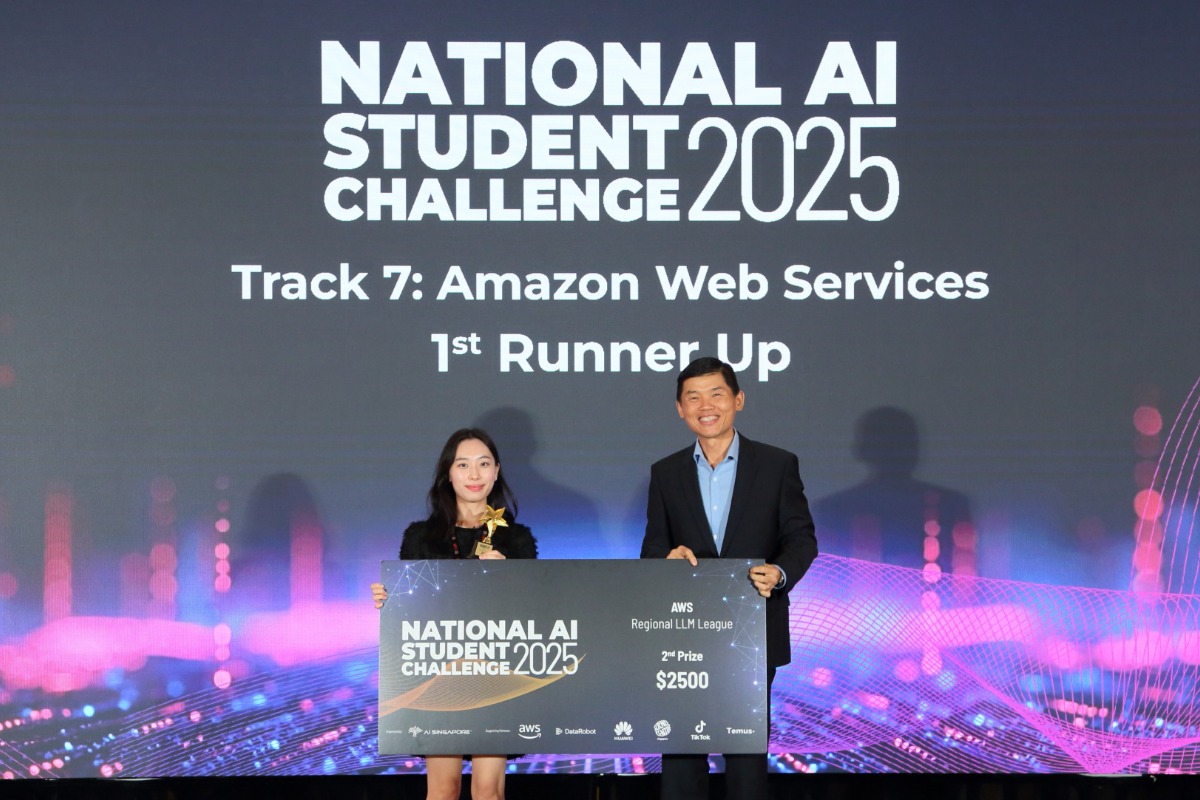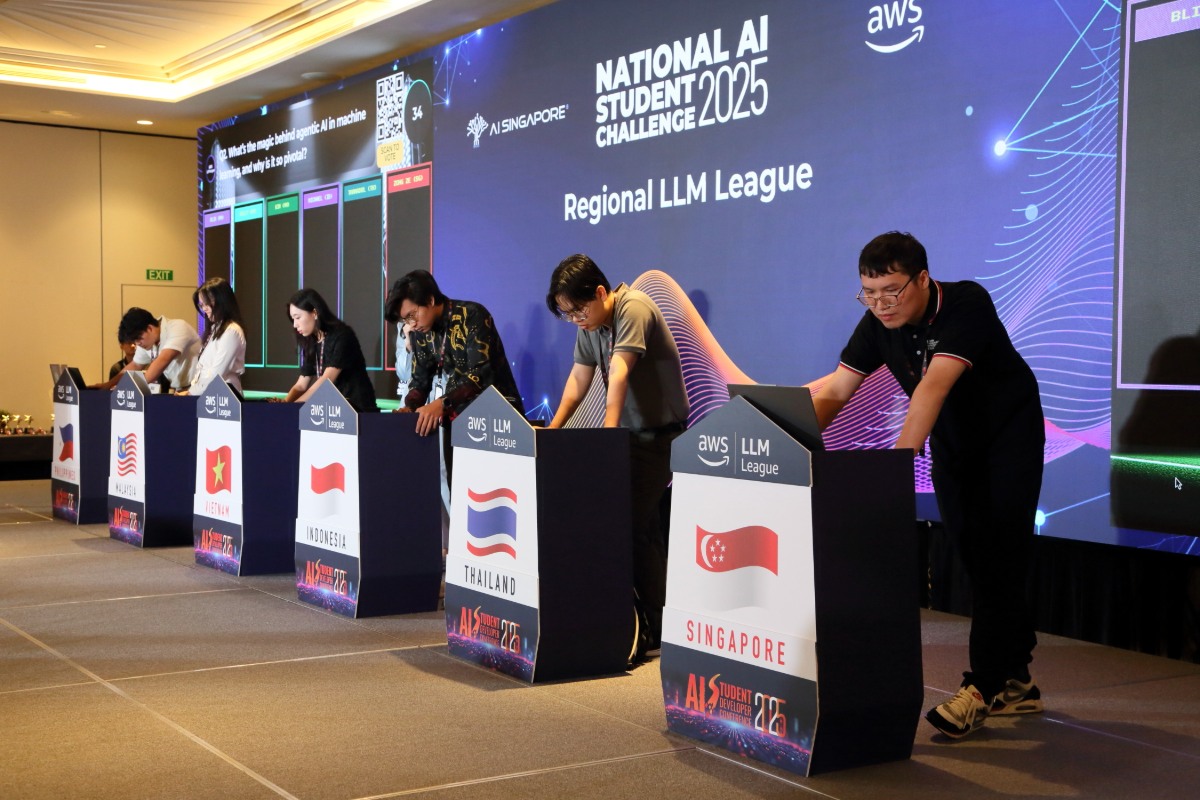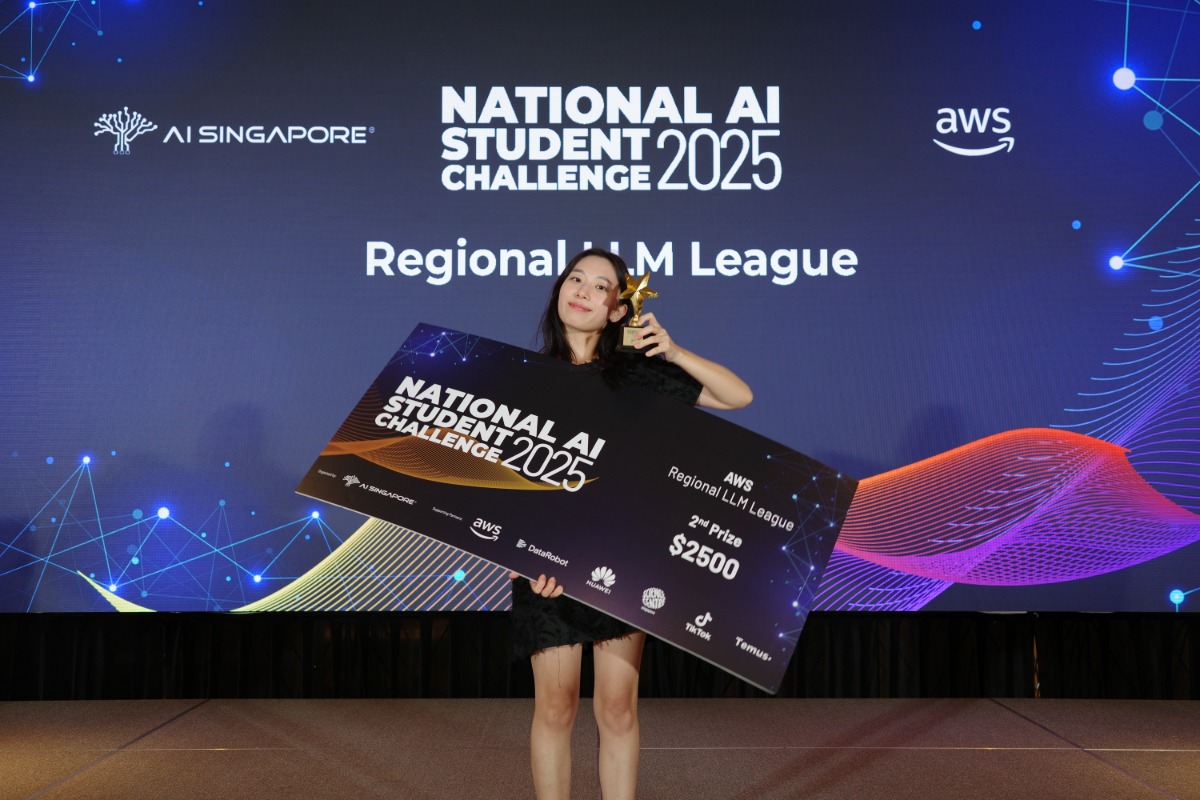
Seokyung Kim, a third-year Software Engineering student at RMIT Vietnam, has been named runner-up at the ASEAN finals in the AWS x AI Singapore National AI Student Challenge 2025 (LLM League), held in Singapore in May.
 Seokyung Kim is presented with the 1st Runner-Up award at the ASEAN Finals, celebrating a standout performance on the regional AI stage. (Photo: National AI Student Challenge 2025 by AI Singapore)
Seokyung Kim is presented with the 1st Runner-Up award at the ASEAN Finals, celebrating a standout performance on the regional AI stage. (Photo: National AI Student Challenge 2025 by AI Singapore)
The competition is part of the National AI Student Challenge (NAISC), organised by AI Singapore and supported by the Infocomm Media Development Authority (IMDA) and leading technology partners. The program aims to develop the next generation of AI practitioners through hands-on, high-impact learning experiences and has attracted more than 2,000 student participants.
In 2025, the challenge featured seven tracks, with the AWS Track open to university students from Vietnam, Singapore, Malaysia, Indonesia, Thailand and the Philippines. The competition spanned five months, starting with registration in January and concluding with the Grand Final in late May.
Participants were required to fine-tune or develop a large language model (LLM) using Amazon SageMaker JumpStart, a professional-grade AI development platform. They were evaluated on how effectively their models could outperform a reference model and other submissions in a quiz-based performance test. While an initial dataset was provided, each participant was expected to build and optimise their own domain-specific dataset to train the model effectively.
 Representing Vietnam, Seokyung Kim joins top student developers from six ASEAN countries in a high-stakes live benchmarking round. (Photo: National AI Student Challenge 2025 by AI Singapore)
Representing Vietnam, Seokyung Kim joins top student developers from six ASEAN countries in a high-stakes live benchmarking round. (Photo: National AI Student Challenge 2025 by AI Singapore)
Seokyung was selected as Vietnam’s national winner from over 1,300 applicants across six ASEAN countries. Her submission focused on building a custom Q&A dataset on Generative AI and fine-tuning a LLaMA 3B 3.2 Instruct model using Amazon SageMaker. Her solution demonstrated both technical accuracy and practical relevance, earning her a place in the ASEAN finals and a fully sponsored trip to Singapore.
At the Grand Final, held on 28 and 29 May, she competed against top national finalists from the region in a live benchmarking session that tested the quality, efficiency and adaptability of each model.
“This was my first time fine-tuning a large language model,” Seokyung said. “What started as a blurry challenge turned into my biggest technical leap. I reworked datasets, sat through midnight trainings, and just kept figuring it out - one iteration at a time.”
The process, she admitted, was far from smooth. “But the mindset was clear,” she said. “You don’t need to be ready. Just start. Learn fast. Iterate relentlessly. The wins will come.”
 A proud moment for Seokyung Kim as she holds her award after excelling at her first international AI competition. (Photo: National AI Student Challenge 2025 by AI Singapore)
A proud moment for Seokyung Kim as she holds her award after excelling at her first international AI competition. (Photo: National AI Student Challenge 2025 by AI Singapore)
Her achievement highlights RMIT Vietnam’s commitment to applied learning, industry connection and future-oriented education. The University’s programs are designed to equip students with both theoretical knowledge and real-world experience through project-based learning and global collaboration opportunities.
"Competitions like this are not side projects. They are extensions of the academic experience," said Associate Professor Arthur Tang, Senior Lecturer, Information Technology & Software Engineering, RMIT Vietnam.
"They allow students to apply what they have learned, challenge themselves in high-stakes environments and demonstrate their readiness for careers in emerging technologies."
As artificial intelligence continues to shape the future of work, Seokyung’s experience reflects RMIT’s broader strategy to ensure students are not only prepared for change, but capable of leading it.
Story: Quan Dinh H.
Masthead image: National AI Student Challenge 2025 by AI Singapore
Thumbnail image: National AI Student Challenge 2025 by AI Singapore
Vietnam’s first-ever Law on Artificial Intelligence (AI) was passed on 10 December 2025 and will take effect from 1 March 2026, marking a milestone in the country’s digital governance and innovation strategy.
Vietnam’s new Atomic Energy Law opens the door to advanced nuclear technologies, but success will hinge on grid readiness, safety culture, and skilled people, say RMIT University Vietnam academics.
Experts in information technology, psychology and communication from RMIT Vietnam share their perspectives on the risks associated with consuming and spreading unverified information online.
Co-organised by the Ministry of Education and Training (MOET) and RMIT Vietnam, the Vietnam Education Festival on AI and Digital Innovation 2025 created a nationwide platform for teachers to connect, learn and share best practice.